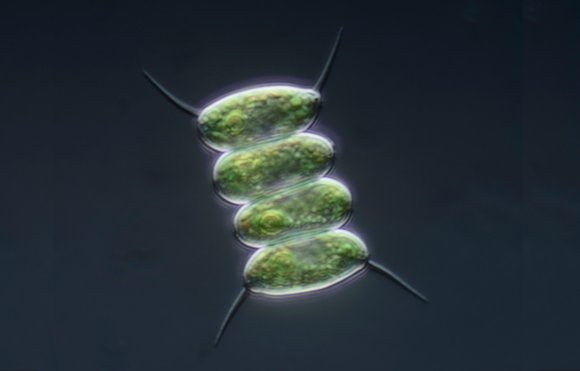The Wheal Jane tin mines in Cornwall, UK, closed in 1992. In an effort to prevent pollution of the nearby river Fal, the British government invested large sums of money in remediating the water that accumulated in these mines. Researchers from four British universities joined forces and believe to have found the perfect solution in microscopic algae.
a win-win solution
The GW4-alliance (a collaboration between the Universities of Bristol, Bath, Cardiff and Exeter) grows micro-algae in my untreated water from tin mines in Cornwall. These algae turn out to be very effective in the removal of heavy metals such as arsenic and cadmium, from this mine water. The algae are subsequently dried and converted to a solid material from which the heavy metals are extracted. These metals can be used in the electronics industry. The remaining material is converted to biofuel. Dr. Chris Chuck, researcher at the University of Bath: "It's a win-win solution to a major environmental problem. We clean contaminated water and as an added bonus we gain valuable metals and biofuel."

Algae is the general name for various groups of simple organisms which use sunlight as a source of energy and produce oxygen (O2) in doing so (photosynthesis).
promising
The process can be applied to any type of mine. But also in the cleaning of industrial waste water. Especially in the third world, where sanitation is often ignored due to the high costs and low yields, this can be a perfect solution. Since the algae process pays for itself, it can potentially improve the global environment and the health of millions of people.
Sources:
University of Bristol
and
Plymouth Marine Laboratory
.
Want to know more about algae? Micropia has many live micro-algae species on display and shows their important functions in our society.
Plan your visit
.
